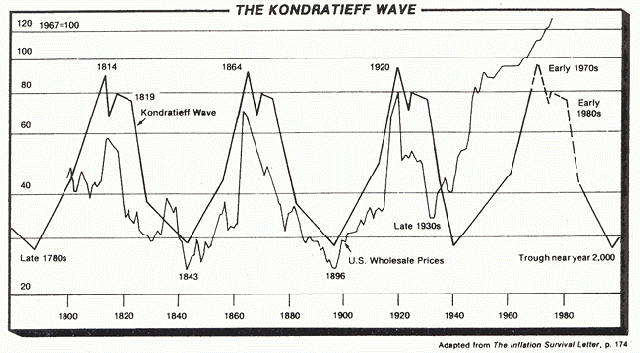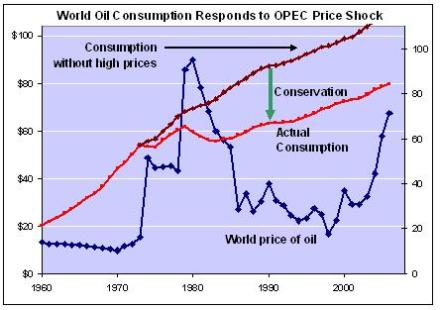Financial Crisis/Geopolitical Crisis
Crisis? What Crisis?
Suh: These days, everybody is talking about a crisis. But everyone has a different definition of crisis. Some talk about a financial crisis, others about a more general economic crisis, including production. Still others talk about a crisis of neoliberalism, a crisis of American hegemony, and, of course, some talk about a crisis of capitalism. I would like to start by asking how you define the current crisis.
Wallerstein: First, I think the word crisis is used very loosely. As most people use it, it simply means a situation in which some curve is going down that had been going up. And they call that a crisis. I don’t use the term that way. But, in fact, I think we are in a crisis and a crisis is a very rare thing.
We have to separate a number of elements here. If you take the world since 1945, we had a situation for about 25 years in which the United States was the unquestioned hegemonic power in the world system and it was also true that it was a period of enormous economic expansion. It was, in fact, the single biggest economic expansion in the history of the world economy. The French like to call it the “Thirty Glorious Years.”
Kondratieff Cycles
Both came to an end roughly at about the same time, circa 1970, although it’s very hard to date these things. I think U.S. hegemony has been in decline ever since that time. I analyze these things in terms of what are called Kondratieff (Kondratiev) phases, and we entered a Kondratieff B phase at about that time. The world economy has been in relative stagnation for 30 years. Typical characteristics of a stagnation include the fact that what were largely monopolized industries that have earned enormous profits no longer do so because others have entered the markets efficiently at that point, and so the profit levels of the most profitable industries basically collapse.
 One rendering of U.S. Kondratieff Cycles in the 19th-20th century
One rendering of U.S. Kondratieff Cycles in the 19th-20th century
There are two things that can be done about that. One is to move the industries to areas of historically lower wages. Why you don’t do that earlier is that doing so involves a loss -- a loss in transaction costs. I have this crisis of profits. Korea develops as so many other countries develop. They take up the less profitable industries and become the locus of them.
The second thing that happens when you have a Kondratieff B phase is that people who want to make a lot of money shift to the financial sphere; basically, speculation through debt mechanisms of various kinds. I see this from the point of view of the powerful economic players circa the 1970s, the United States, Western Europe and Japan. I call it exporting unemployment. Since there is a relative amount of unemployment in the world system as a result of the decline of industrial production, the question is: Who is going to suffer? So each tries to export the unemployment to the other. And my analysis is that in the 1970s Europe did well, and in the 1980s Japan did well, and in the beginning of the 1990s the United States did well. Basically, by various mechanisms -- I don’t want to go into the details of the analysis of how they did it -- but financial speculation always leads to a bust. It’s been doing that for 500 years, why should it stop now? It comes at the end of a Kondratieff B phase. Here we are. So what the people are calling a financial crisis is simply the bust. This recent business of Bernard Madoff and his incredible Ponzi scheme is just the most perfect example of the impossibility of continuing to make profits off financial speculation. At some point, it goes. If you want to call it a financial crisis, be my guest. That’s not important.
Suh: What is particularly interesting about the current phase of the Kondratieff cycle, to use your preferred term, is that the world economy is reaching the bottom of the cycle just as U.S. hegemony is being questioned more seriously than before. It has been declining for some time, perhaps for about 30 years since its defeat in Vietnam. Various U.S. administrations have tried to reverse the process by various means. Some tried human rights diplomacy or some version of liberal measures. Others attempted more realist policies by expanding military capability or turning to high-tech military power such as “Star Wars.” None were able to reverse the process, but everyone sought to find the most efficient way to manage the world with less power. What happened in recent years is that George W. Bush came along with the neocons who thought they were going to reverse this by policy of militarism and unilateralism. But instead of reversing the process and restoring U.S. hegemony, they accelerated the process of decline.
Financial Crisis/Geopolitical Crisis
Wallerstein: Here we are, about to be 2009, and we are in a multi-polar situation, which is irreversible from the point of view of the United States and a very complicated messy one. And we are in a so-called financial collapse. We are in a depression. I think that all this pussy-footing about language is nonsense. We are in a depression. There will be serious deflation. The deflation, conceivably might take the form of runaway inflation but that’s just another form of deflation, as far as I’m concerned. We might not come out of that for four or five years.
It takes awhile. Now all of that is what I think of as normal occurrences within the framework of the capitalist-run system. That’s how it operates. That’s how it always has operated. There’s nothing new in the decline of hegemony. There’s nothing new in the Kondratieff B phase and so forth. That’s normal.
Suh: The long economic stagnation, combined with the decline of hegemony, may just be part of a normal operation of the historic world system. But how is the capitalist world economy itself doing? Is it possible that the whole system is in such deep trouble this time that it may find it impossible to get out of the current trouble? In other words, the capitalist world system has had several crises before and succeeded in getting out of them. The current trouble is a definite downturn. But is it another turn in the normal cycle? Or is there anything that makes this time different from previous periods of trouble?
Wallerstein: That’s the other question, which is crisis. There is a crisis of the capitalist system, that is to say we have the conjuncture of normal downturn processes. What I think of as the fundamental crisis of the system is such that I don’t think the system will be here 20 or 30 years from now. It will have disappeared and been completely replaced by some other kind of world system. The explanation of that I have given a number of times in a number of my writings in the last 30 years is that there are three basic costs of capital which are personnel costs, input costs and taxation costs. Every capitalist has to pay for these three things, which have been rising steadily as a percentage of the price at which you can sell products. They have gotten to a point where they’re too large and the amount of surplus value that you can obtain from production has gotten so squeezed that it isn’t worth it to sensible capitalists. The risks are too great and profits too small. They are looking for alternatives. Other people are looking for other alternatives. For this I use a Prigogine kind of analyses where the system has deviated so far from equilibrium that it cannot be restored to any kind of equilibrium, even temporarily. Therefore, we are in a chaotic situation. Therefore, there is a bifurcation. Therefore, there is a fundamental conflict between which of the two possible alternative outcomes the system will take, inherently unpredictable but very much the issue. We can have a system better than capitalism or we can have a system that is worse than capitalism. The only thing we can’t have is a capitalist system. Now, I have given you a short version of the whole argument.
Suh: So, even if the world system as a whole has been on the decline, has been in the B phase, there were also many “dangerous moments,” let’s say, so as not to use the word “crisis,” in the early 1970s, 1980s and 1990s. And each time there were pundits who forecast the end of the system or the end of the capitalist world. But each time the world system found a way out of the difficulties. In the 70s, for example, the capitalist world economy found a way to survive the oil crisis. It found a way out of the difficulties of the 80s and 90s also. From a longer term perspective, the capitalist world economy managed to get out of more serious troubles like the Great Depression or earlier ones in the 19th century. So what is that makes this time different?
 World oil prices and consumption, 1960-2008
World oil prices and consumption, 1960-2008